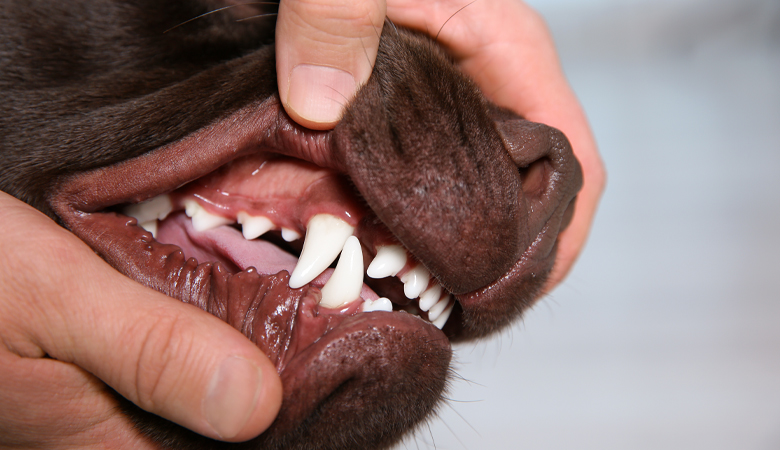Your dog’s teeth
Written by Tommy |
A pup is born toothless. Just as in humans, puppies will first develop their baby teeth (milk teeth). These will later be replaced by permanent adult dog teeth.

The baby teeth of a puppy
When puppies are about 3 weeks old, their baby teeth will normally start to appear. Pups need their baby teeth to process solid food. A puppy also needs to learn how to use its teeth; they need to know how hard they can bite. When they are still young, they learn to do so by biting their brothers and sisters. If they bite too hard, a reaction will follow. A puppy also uses his teeth to examine things, as they do not have hands to hold things with.
When do puppies lose their teeth?
Between 13 and 21 weeks your pup will start losing its teeth. First the incisors are lost, then the canine teeth and lastly the molars. Most puppies have changed all teeth around the age of 7 months. The age at which a puppy will lose its baby teeth varies depending on the breed and size of your dog. Large breeds usually lose their milk teeth earlier than smaller breeds.
| Overview dog teeth | ||
|---|---|---|
| Tooth type | Formation baby teeth | Changing period |
| Incisors | Between 3-4 weeks of age | 3-5 months of age |
| Canine teeth | Between 3-5 weeks of age | 5-7 months of age |
| Premolars | Between 4-12 weeks of age | 4-6 months of age |
| Molars | 4-7 months of age |
Adult dog teeth
The teeth of adult dogs consists of 42 elements, which include:
- 12 incisors, 6 in the upper jaw and 6 in the lower jaw
- 4 canine teeth, 2 in the upper jaw and 2 in the lower jaw
- 16 premolars, 8 in the upper jaw and 8 in the lower jaw
- 10 molars, 4 in the upper jaw and 6 in the lower jaw



